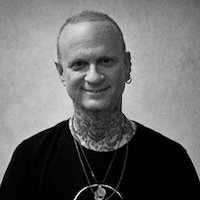We human beings seek comfort in the familiar.
In fact, we have a compulsion to return to situations we’ve come to know well from earlier times in our lives.
This might mean we enjoy listening to the same music we loved in our teens. I have a particular fondness for the music I listened to at 16, for example, King Crimson, Marvin Gaye and Steve Reich; while plenty of other terrific music exists in the world, at times I find myself almost magnetically drawn toward their music.
After particularly stressful days I may seek refuge in the familiarity of comfort foods that I loved as a teen, such as two slices of particularly New York cheesy pizza, despite the lack of nutrition or lasting health benefits.
But there are far more negative implications of repetition compulsion, namely the tendency to find oneself in relationships with people who are emotionally abusive or continually unavailable. We may yearn for an intimate romantic relationship, yet find ourselves attracted, again and again, toward people who are incapable of intimacy. Clearly these patterns are driven by unconscious tendencies, as few people consciously choose friends and lovers based on a wish for suffering.
So, what is responsible for such self destructive choices?
Let’s reflect on our early experience: as infants we could not survive on our own; losing the attention and care of a parent would result in devastating feelings of vulnerability; as children we thrive only when we feel securely connected to our caretakers.
So, during our most vulnerable and formative years, each of us develops a set of behaviors that maintain connection at all cost. For example, some children will learn to suppress sadness or fear in favor of feigned happiness or confidence, as their parents may prefer happiness and confidence while penalizing sadness or fear by shunning, shaming, rejecting or pulling away.
As we observe our caretakers, we develop what have been referred to as “inner working models” of the world, essentially expectations of how we believe other people will behave toward us. If our emotional messages are regularly understood by our caretakers, we’ll grow to foresee our needs will be met by the world; if our emotional signals are unmet, we’ll await interpersonal catastrophes and disappointment.
For another example, parents who reward achievement in school, such as good grades, will find their children develop into adults who are obsessed with recognition, social status and material rewards. Parents who reward their children for the effort they put into homework, rather than the grades they receive, will find their children become adults who are less concerned with people pleasing and shallow materialist goals.
It’s from our early experiences that “repetition compulsion” develops. As the mind is set up to return to the known and familiar, we will gravitate, in adult life, toward people who recreate our family systems. Sometimes what’s known as an obsession to “master” will arise: we’ll develop an unconscious urge to “re-write” our most disappointing childhood experiences toward more satisfying outcomes: a woman who grew up with a cold-and-distant father will be attracted to cold-and-distant men, hoping to attain the love and support so desperately lacking in their earlier periods of life.
Naturally, if she finds a man who is caring and attentive, she’ll invariably lose interest as he no longer represents her father; if he remains indifferent, she remains unsatisfied. An un-winnable situation is created.
Despite how frustrating these patterns can become, and how determined we are to put them aside, if we attempt to act in more positive ways we would feel vulnerable and frightened. We return to the familiar because it feels safer. When we’ve chosen the same type of friends and lovers for decades, we’ll find their lack of attention or intimacy almost rewarding, for it will confirm our beliefs about the world. People return to emotionally abusive relationships as, deep down, they do not believe they deserve care, or that its even available anywhere.
The way forward for “grown children”—i.e., adults—is to locate tolerant people who can model for us the “unconditional love’” we sought, but didn’t attain, in our earlier stages of development. We can begin to rewrite our emotional expectations of others, ingraining new “inner working models” of the world. Such people can be found, if we persevere, in spiritual communities, 12-step fellowships and social activities. We can find new models in therapy, or from a spiritual mentor. Once we’re safely connected, old feelings of abandonment and rejections can be explored; we can learn to choose lovers or friends based on new models.
Finally, it’s worth noting that it can take years for us to locate the courage to put aside our patterns and repetitive choices. It’s a long process that requires patience and effort, but there’s no other choice if we wish to attain happiness in life.
Relephant bonus:
Relephant:
Healing Family Karma.
~
Love elephant and want to go steady?
Sign up for our (curated) daily and weekly newsletters!
Author: Josh Korda
Editor: Travis May
Photo: IMDB
 Share on bsky
Share on bsky


Read 13 comments and reply